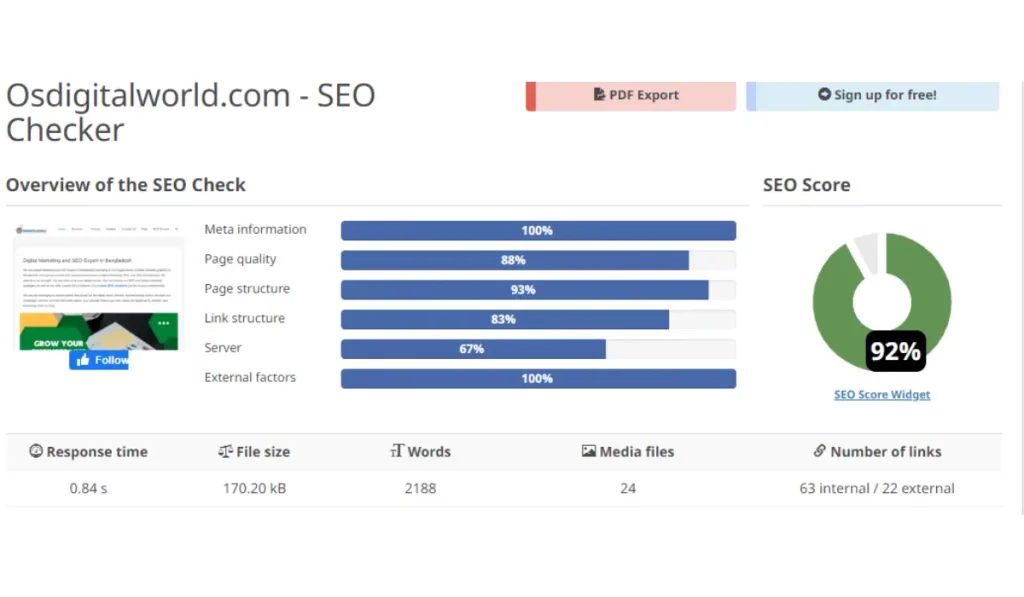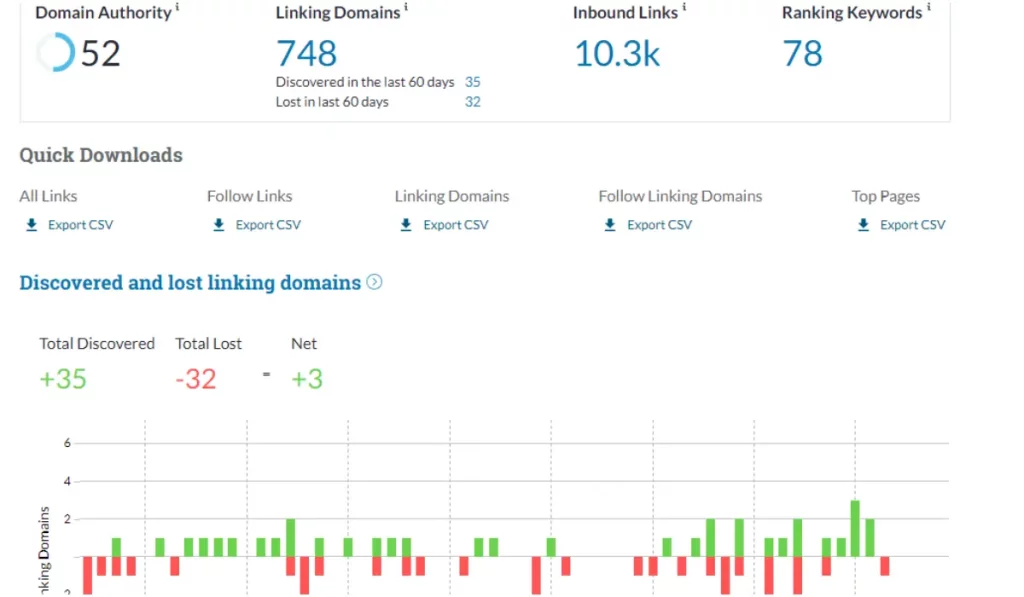SEO audit plays a vital role in SEO campaigns. Without auditing a website, your total investment and efforts for an SEO campaign may ruined. That’s why it is one of the most important parts of an SEO campaign. In this context, I will share how to do SEO audit for a website.
Let’s jump into the deep:
What is SEO Audit?
An SEO audit is a comprehensive evaluation of a website’s search engine optimization (SEO) performance. It’s a process where the goal is to assess how well a website is optimized for search engines like Google, Bing, and others. The primary purpose of an SEO audit is to identify areas where improvements can be made to enhance a website’s visibility in search engine results pages (SERPs) and ultimately drive more organic (unpaid) traffic.
Here are the key components typically involved in an SEO audit:
On-Page SEO Analysis:
This involves assessing the content and HTML source code of individual web pages. It includes factors like keyword optimization, meta tags (title tags, meta descriptions), heading tags (H1, H2, H3, etc.), keyword density, and internal linking structure.
Technical SEO Audit:
This focuses on the technical aspects of a website, such as site speed, mobile-friendliness, crawlability, indexability, XML sitemaps, and the proper use of robots.txt files. It also includes checking for duplicate content, broken links, and other technical issues that can affect SEO.
Off-Page SEO Analysis:
This evaluates the website’s backlink profile, which includes the quantity and quality of external links pointing to the site. It also assesses the website’s social media presence and mentions across the web.
Keyword Research and Analysis:
Reviewing the keywords a website is currently targeting and identifying new keyword opportunities that can help improve rankings and traffic.
Competitor Analysis:
We are analyzing the SEO strategies of competitors to gain insights and discover opportunities to outperform them in search results.
Content Evaluation:
Assessing the quality, relevance, and uniqueness of the website’s content. Identifying gaps in content that can be filled to target valuable keywords.
Local SEO (if applicable):
For businesses with physical locations, ensure that their local SEO is optimized, including Google My Business profiles and local citations.
User Experience (UX) Assessment:
We are evaluating how user-friendly the website is, including factors like page load times, mobile responsiveness, and overall design and usability.
Analytics and Metrics Review:
Examining data from tools like Google Analytics and Google Search Console to assess the website’s performance in terms of traffic, click-through rates, bounce rates, and more.
Recommendations and Action Plan:
After the audit is complete, an SEO audit report is generated, outlining the findings and recommendations for improvement. This report serves as a roadmap for making necessary SEO changes.
An SEO audit is a crucial step in any SEO strategy because it helps website owners and marketers identify and address issues that may be hindering their online visibility and rankings. By making improvements based on the audit’s recommendations, a website can enhance its chances of ranking higher in search engine results, attracting more organic traffic, and achieving its online goals.
Importance of SEO Audit
An SEO (Search Engine Optimization) audit is a comprehensive analysis of a website’s current state in terms of its search engine visibility and overall health. It’s a crucial process for anyone looking to improve their website’s performance in search engine rankings, enhance user experience, and drive more organic traffic. Here’s a detailed look at the importance of an SEO audit:
Identifying Issues:
An SEO audit helps uncover technical, on-page, and off-page issues that might be hindering your website’s performance. These issues could include broken links, duplicate content, slow page loading times, and more. Identifying and rectifying these issues can significantly improve your website’s SEO.
Prioritizing Tasks:
Not all SEO tasks are equally important. An audit helps you prioritize which issues to tackle first based on their impact on SEO. For example, fixing critical technical issues might take precedence over optimizing meta tags.
Keyword Optimization:
Audits often involve keyword research and analysis. This helps you understand which keywords your site currently ranks for, which ones you should target, and how to optimize your content to improve keyword rankings.
Competitor Analysis:
SEO audits often include an analysis of your competitors. This helps you understand what keywords they’re targeting, what strategies they’re using, and how your site compares. This information can be invaluable in formulating your SEO strategy.
Content Evaluation:
Your website’s content is a critical aspect of SEO. An audit can identify content gaps, opportunities for content expansion, and whether your existing content is optimized for SEO.
User Experience (UX):
SEO isn’t just about optimizing for search engines; it’s also about improving the user experience. An audit can help identify UX issues like poor navigation, mobile responsiveness problems, and slow loading times. Addressing these issues can lead to higher user engagement and better search rankings.
Link Profile Analysis:
Backlinks are a significant factor in SEO. An audit assesses your site’s backlink profile, helping you identify low-quality or toxic backlinks that might harm your rankings. It also helps you find opportunities to acquire high-quality backlinks.
Technical SEO:
Technical SEO issues, such as XML sitemap errors, robots.txt issues, and HTTPS implementation, can impact how search engines crawl and index your site. An audit can uncover these issues and guide you on how to fix them.
Algorithm Updates:
Search engine algorithms are constantly evolving. An SEO audit helps you stay up-to-date with these changes and adjust your strategy accordingly. For instance, Google might release updates that favor mobile-friendly websites, and an audit can help you adapt.
Measuring Progress:
After implementing changes based on the audit recommendations, you can track improvements in your website’s search rankings, organic traffic, and other key performance indicators (KPIs). This helps you gauge the effectiveness of your SEO efforts.
Business Growth:
Ultimately, the goal of SEO is to drive more organic traffic, which can lead to increased leads, sales, and revenue. An SEO audit is a vital step in achieving this business growth by ensuring your website is optimized for search engine success.
An SEO audit is a fundamental process for understanding the current state of your website’s SEO, identifying areas for improvement, and developing a strategic plan to enhance your online visibility. It’s an ongoing process that plays a crucial role in the long-term success of your website and business in the digital landscape.
How do I do an SEO Audit for a Website
For me, manual audit is very important though I use SEO tools like SEMRUSH, MOZ, etc. Here I’m sharing my SEO audit steps:
On-Page SEO

First, I always check the on-page SEO scores of websites. Metadata, Meta Title, Image Alt Text, internal links, XML sitemap, robots.txt file, mobile friendliness, etc. Usually, I use seobility.net for checking on-page SEO status.
If I feel anything needs to change or add, I do it immediately.
Off-page SEO

In the off-page SEO audit, I check the quality of backlinks, number of domains, number of backlinks, spam score, etc. Usually, I use MOZ or SEMRUSH.
I also check the social signals of the target website while doing an off-page SEO audit.
User Experience
User Experience is the most critical part of an SEO campaign. That’s why I do it manually, though a manual audit needs a huge time. I also check competitors’ user experience while auditing user experience.
In the user experience audit, I check the website’s load speed, content quality, readability, information, navigation, how easily use the website, forms useability, privacy policy, about, cookies, etc.
Here is a big question Why do I do manual audits for U/X?
There are many things that tools can’t identify, but those points play a key role in the ranking. For example, many websites use demo videos, FAQs, etc. regarding how to use this website.
These guidelines help to improve U/X as well as ranking.
Remember that user experience is an ongoing process. Regularly revisiting these checkpoints and gathering user feedback is crucial to continuously improve your website’s user experience.
My Opinion
SEO audit is an ongoing process. So, you have to perform an SEO audit regularly while doing an SEO campaign. Also need to update content, remove or replace broken links, continue to improve user experience, etc. If you don’t do audit regularly or do it very often, your SEO campaign may not succeed.
Read More Articles





